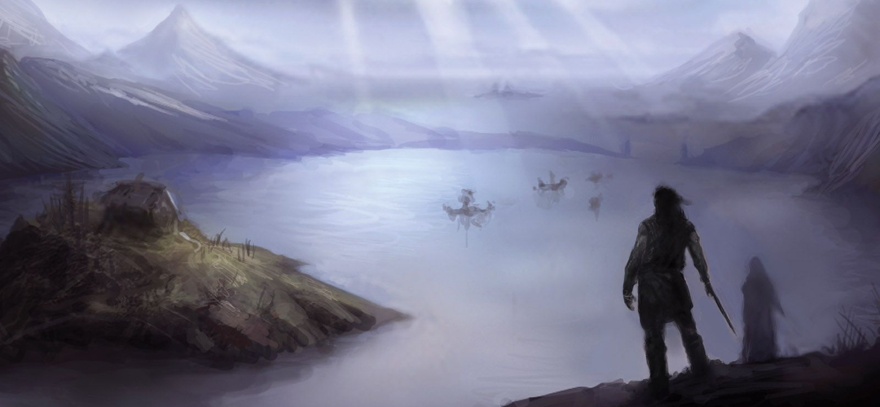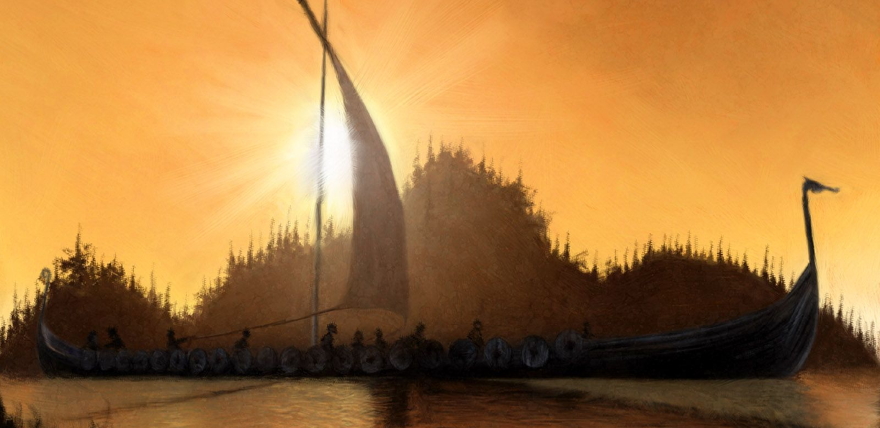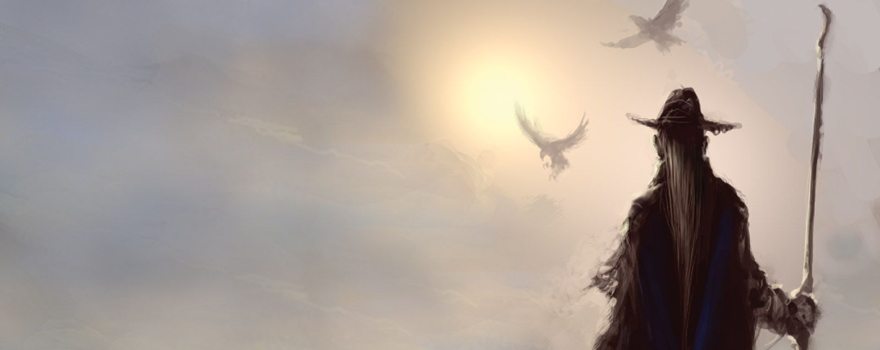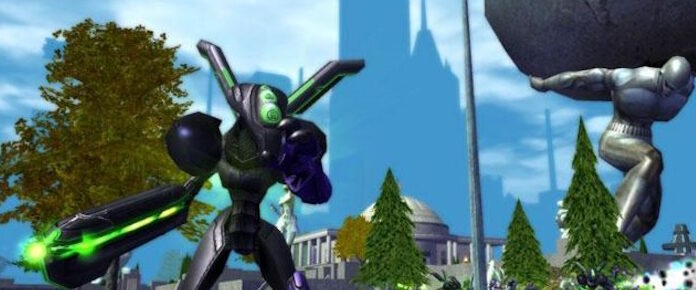
There used to be a time that Funcom was deeply into the MMORPG business, bringing us titles such as Anarchy Online, Age of Conan, and The Secret World. While the last few years has seen the Norwegian studio sidle out of MMOs and into other genres, we shouldn’t forget that Funcom was once passionate about massively multiplayer games.
In fact, there was a fourth MMORPG that Funcom had developed for a while there before letting it slip into its recycle bin. Today we are going to take a look back at Midgard, a Norse-themed MMO that held a lot of promise before it disappeared. What was this title and why did it never come to fruition?
The Secret Age of Vikings Online
If you’ve never heard of Midgard, then there is no reason to feel stupid. The project was a very early blip in Funcom’s MMO run, first appearing in interviews to the press at E3 in May 2001. This was, you might recall, very shortly before the disastrous launch of Anarchy Online. By July, Funcom had its hands more than full for the rest of the year.
Midgard was announced as the follow-up to Anarchy Online, but instead of sci-fi adventures on another planet, this game would take players back to a fictionalized Viking setting that incorporated both myth and history. The concept was very similar to Mythica, a Microsoft-developed MMO that was canceled while in development in 2004.
“Midgard recreates the world of the ancient Norse as it might have looked, a thousand years ago, during the age of the Vikings,” Funcom stated in 2001. “The game introduces players to a fantastically detailed environment comprised of tall mountains, deep fjords, cold glaciers, and dark forests, as well as cities, towns, and villages inhabited by the players themselves. By bringing traditional single-player elements into this massively multi-player setting, Funcom hopes to offer something for everyone.”
The official website, which is still preserved thanks to the Internet Wayback Machine, gives us this intriguing introduction to the game’s setting: “It is a land where deep fjords cut winding cracks through tall, snow-capped mountains, a land of dark forests and desolate tundra, raging rivers and foul fens – enclosed by the world serpent – a land of wondrous beauty and lurking terrors, where short summers are shadowed by long, harsh winters, and where the wild places are slowly diminished by the ever-expanding hand of civilization. In this land, the gods may be feared and respected, but mortals have won the right to shape their own fate.”
Low threshold, great depth
Ragnar Tornquist was tapped to produce the MMO, and he talked a big game when it first came to the light. The elevator pitch for Midgard was “low threshold, great depth,” which basically meant that Funcom was trying to make a game that was easy to get into but would take a good long while to master and properly learn. The devs were quick to trumpet Midgard as far more inclusive of other video game genres than its competition, promising city building, exploration, trade, resource management, politics, and diplomacy in addition to the standard RPG progression mechanics. Comparisons to the Civilization and Settlers series were tossed around as inspiration.
Midgard’s focus on building up settlements and communities held great appeal to Tornquist, who admitted that he wasn’t a fan of online games. Each settled area would “give players actions and consequences rather than morals,” according to Tornquist.
Speaking of morals, Midgard would have allowed players to procure and own slaves — thralls — which subsequently resurfaced in Conan Exiles. “Midgard could well be the first online world to include slavery as an important part of the economy,” Eurogamer wrote.
There would have still been a lot of fighting — we are talking about Vikings, after all. Fighting and drink and tall stories to tell afterward. One interesting twist on dying is that deceased players would temporarily ascend to Vahalla, where they would fight each other in the game’s sole PvP zone before returning to the world proper.
Characters wouldn’t start out as a class, but rather find an in-game “mentor” to train in various professions, from shepherding and blacksmithing to the combat arts. The team also hinted at physical changes that would come with your character’s progression, from losing weight to gaining muscle.
Since crafting and the economy were to be one of the major pillars holding Midgard up, Funcom chose to implement item decay as a way to create a shelf life for old items and a constant demand for new.
If you loved the Norse pantheon, then you would probably have gotten along with Midgard’s mythology. Famous gods such as Loki, Odin, and Titan would make appearances and be available for prayers and mischief.
Ragnarok come early
It wasn’t long before Midgard started to run into trouble. By the end of 2001, a round of layoffs forced Funcom to shuffle all of Midgard’s devs over to Anarchy Online, placing the former on hold. Unfortunately, Midgard would never recover from that and was quietly scuttled in the year to come.
Tornquist posted a letter on the site in September 2002 confirming the cancellation: “I’m afraid I have some really bad news. Funcom is putting Midgard on permanent hold — entombing it in the permafrost, so to speak — and moving on.”
So why did Funcom pull the plug on Midgard? There’s no official statement on this, but the scuttlebutt is that the studio (a) wanted to focus more on Anarchy Online, (b) had acquired the Conan license and wanted to invest development into that, and (c) was already starting to work on The Secret World and felt its resources were too divided. It was most likely a business decision based on all of the above.
Secret World fans are probably getting a strange sense of déjà vu from reading about Midgard, as a significant story beat and one of the game’s dungeons all centered around ancient Vikings coming to the shores of New England. So perhaps Midgard’s ghost came to roost in a different setting, sharing a bit of its myths and legends with the next generation of gamers.
 Believe it or not, MMOs did exist prior to World of Warcraft! Every two weeks, The Game Archaeologist looks back at classic online games and their history to learn a thing or two about where the industry came from… and where it might be heading.
Believe it or not, MMOs did exist prior to World of Warcraft! Every two weeks, The Game Archaeologist looks back at classic online games and their history to learn a thing or two about where the industry came from… and where it might be heading.
















